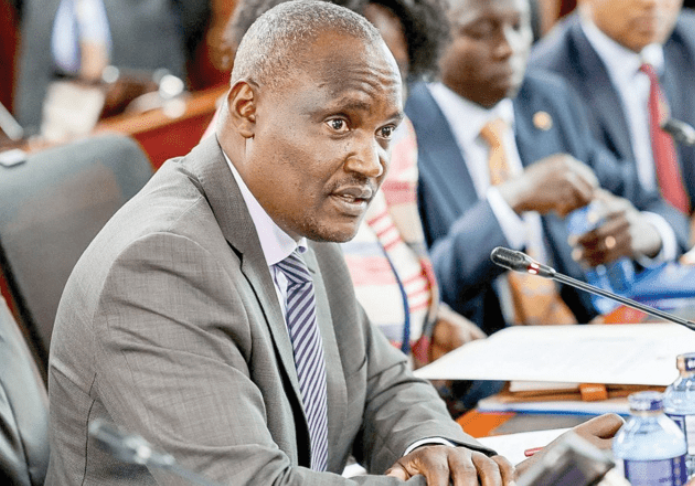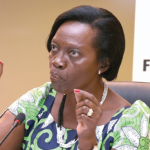The cash crunch in devolved units is set to persist as the national government works tirelessly to resolve a legal impasse that has hindered the disbursement of overdue funds to financially strained counties.
The issue complicating the National Treasury’s ability to release the funds is President William Ruto’s failure to assent to the County Allocation Revenue Bill 2024. This followed the withdrawal of the Finance Bill 2024, which aimed to raise over Sh316 billion for the 2024-25 financial year. The County Allocation Revenue Bill, if passed, would authorize the National Treasury to allocate funds to the 47 devolved units by specifying the monthly allocations for each county.
President Ruto declined to assent to the proposed law after the Finance Bill 2024 was withdrawn. Now, the Division of Revenue (Amendment) Bill, 2024 (National Assembly Bills No. 38 of 2024) proposes an allocation of Sh380 billion to county governments from the shareable revenue raised nationally. This reflects a reduction of Sh20 billion from the Sh400 billion initially allocated under the Division of Revenue Act (DORA), 2024.
Faced with this predicament, National Treasury Cabinet Secretary John Mbadi has sought legal guidance from Attorney General Dorcas Oduor on how to proceed with disbursing the equitable share to counties in the absence of the County Allocation of Revenue Act, 2024.
Counties are currently grappling with severe financial challenges, with some unable to pay salaries for the past three months. Employees in several counties have gone on strike, demanding their overdue wages.
In a letter dated September 9, Mbadi requested the State Law Office to provide an advisory opinion on how to navigate the precarious situation, which is pushing counties towards operational breakdown.
“In the absence of the County Allocation of Revenue Act, 2024, the National Treasury seeks your legal opinion on the appropriate remedy to facilitate the disbursement of the equitable share to County Governments for the Financial Year 2024/25,” reads part of Mbadi’s letter to the Attorney General.
Regulation 134 (1) of the Public Finance Management (National Government Regulations, 2015) states, “If the County Allocation of Revenue Bill submitted to Parliament for a financial year has not been approved by Parliament or is not likely to be approved by Parliament by the beginning of the financial year, the Controller of Budget may authorize withdrawals of up to 50 percent from the Consolidated Fund.
This should be based on the last County Allocation of Revenue Act approved by Parliament to meet the expenditure of the county governments for that financial year.”
In accordance with this regulation, the Controller of Budget can authorize withdrawals up to 50 percent from the Consolidated Fund based on the County Allocation of Revenue Act, 2023. However, Cabinet Secretary John Mbadi argues that this regulation lacks foundation in the County Allocation of Revenue Act itself.
The Supreme Court, in its advisory opinion number 3 of 2019, stated that the percentage of money to be withdrawn should be based on the equitable allocation to counties in the Division of Revenue Act of the preceding financial year. Article 222 (2) (b) of the Constitution specifies that the amount withdrawn should be 50 percent of the total equitable share allocated to counties in the Division of Revenue Act.
Mbadi’s letter to Attorney General Dorcas Oduor noted, “It is therefore uncertain whether the same advice would apply in the current situation where the Division of Revenue Act, 2024 exists, but the County Allocation Revenue Bill 2024 has not been approved.”
Mbadi also contends that the Public Finance Management Act, 2012 does not provide an alternative legal mechanism for disbursing the County Government equitable share if there is a delay in passing the Annual County Allocation of Revenue Bill. The National Treasury has already proposed an amendment to the Division of Revenue Act, suggesting a reduction in the equitable share to county governments from Sh400.1 billion to Sh380 billion.
With the County Allocation Revenue Act not yet enacted, the National Treasury proposed an amendment to the CARB, 2024. On Monday, Mbadi faced a challenging task explaining to Senators why the government decided to cut the shareable revenue to devolved units from Sh400 billion to Sh380 billion. Senate Majority Whip Boni Khalwale suggested that the government should reduce expenditure on unconstitutional offices such as the Office of the First Lady, the Spouse of the Deputy President, and the Prime Cabinet Secretary.



